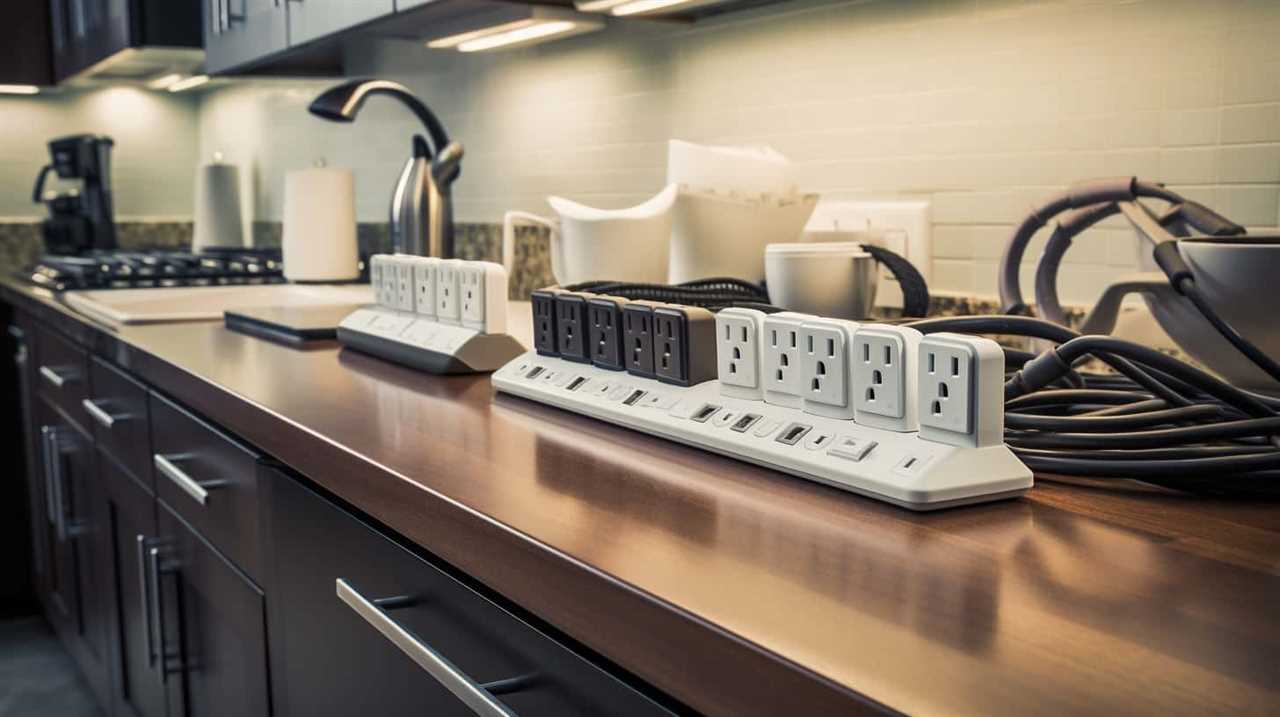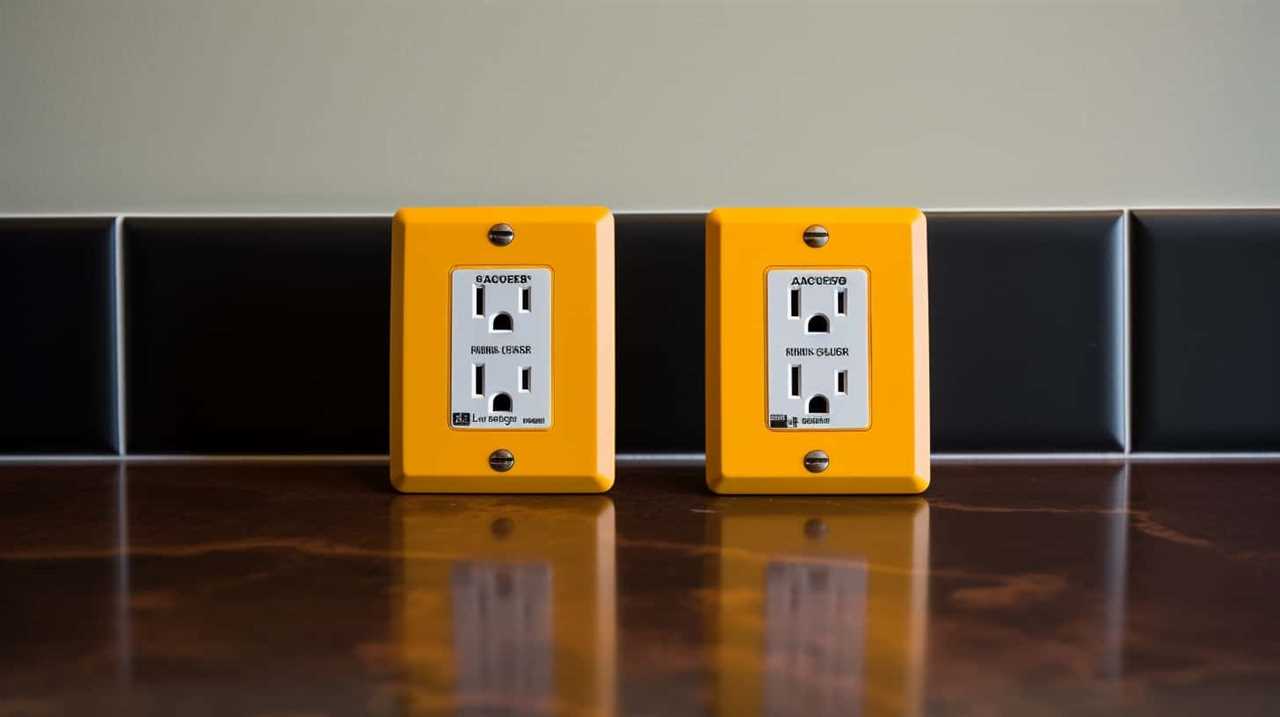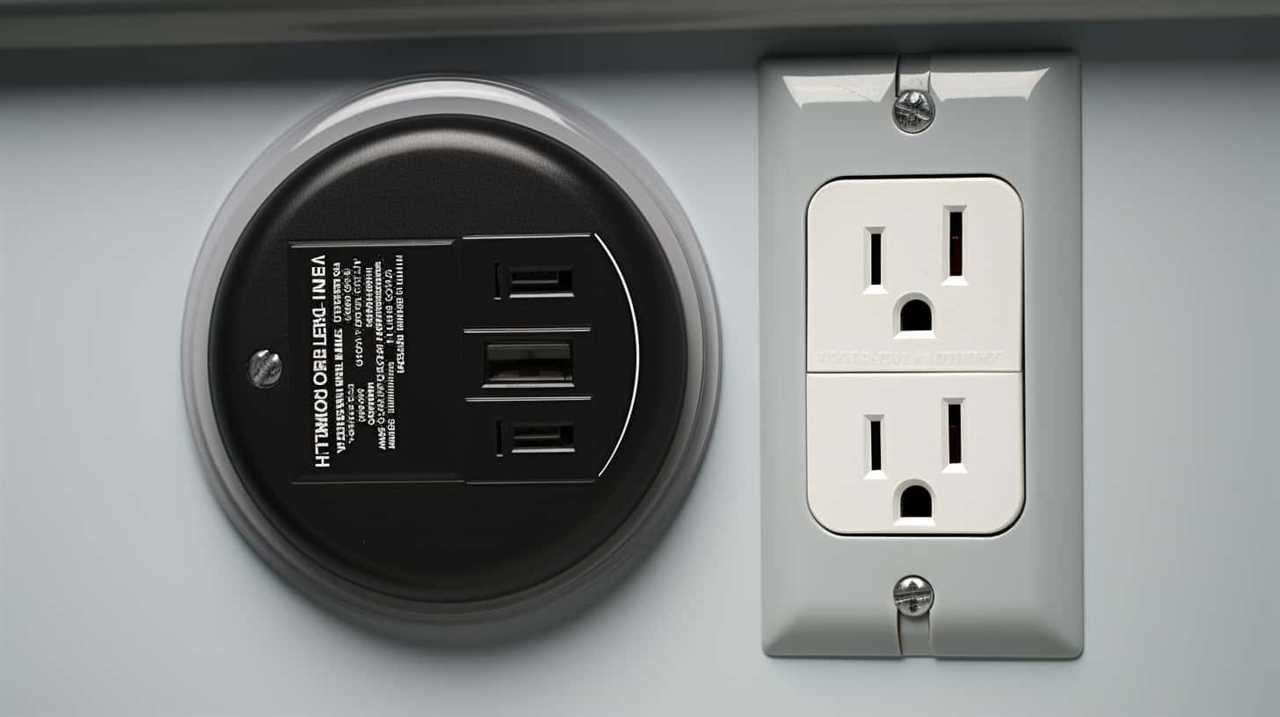Beko, a well-known brand in the appliance industry, has impressed consumers globally with its durable and innovative products. For those seeking expertise, it’s important to delve into the origins and manufacturing methods of these appliances.
This article explores the question, ‘Where are Beko appliances made?’ Delving into the company’s rich history, we will examine the main manufacturing facilities, emphasizing Europe’s status as a manufacturing powerhouse.
Additionally, we will delve into Beko’s global expansion and production sites, shedding light on the Turkish connection that has played a pivotal role in the brand’s success.
Furthermore, we will discuss the quality control measures and sustainable manufacturing practices implemented by Beko.

Finally, we will explore the role of technology in production, providing a glimpse into the future of Beko manufacturing.
Key Takeaways
- Beko has manufacturing facilities in Turkey, China, and various European countries.
- The European facilities comply with strict EU regulations on sustainability and environmental protection.
- Beko strategically establishes production sites across various continents to meet global demand.
- Beko’s manufacturing facilities in Turkey contribute to the economic impact of the country and create thousands of jobs.
The Beginnings of Beko
How did Beko, the renowned appliance manufacturer, come into existence?
To understand the early history and growth of Beko, we need to go back to the year 1955. It was in this year that the company was established in Istanbul, Turkey, under the name ‘Beko Ticaret A.S.’
Initially, Beko focused on importing and distributing electronics and appliances. However, in the 1980s, the company made a strategic decision to shift its focus towards manufacturing its own appliances. This decision marked a turning point for Beko, as it allowed the company to control the entire production process and ensure the highest quality standards.

Over the years, Beko’s commitment to innovation, quality, and customer satisfaction has propelled its growth and established it as a global leader in the appliance industry.
Now, let’s take a closer look at the main manufacturing facilities that contribute to Beko’s success.
The Main Manufacturing Facilities
The main manufacturing facilities responsible for producing Beko appliances are located in various countries around the world. These facilities play a crucial role not only in meeting the global demand for Beko appliances but also in contributing to the local economies and adopting sustainable manufacturing practices.
Here are the key locations where Beko appliances are manufactured:

- Turkey: Beko’s headquarters and largest production facilities are situated in Turkey. These facilities employ a significant number of local workers, providing job opportunities and boosting the local economy.
- China: Beko also has manufacturing facilities in China, taking advantage of the country’s expertise in electronics and manufacturing capabilities. These facilities adhere to sustainable manufacturing practices, ensuring minimal environmental impact.
- Europe: In addition to Turkey and China, Beko has manufacturing facilities in various European countries. These facilities not only support the local economies but also comply with strict European Union regulations regarding sustainability and environmental protection.
Europe’s Manufacturing Powerhouse
Europe has long been known as a manufacturing powerhouse, with a strong tradition of producing high-quality goods. Beko’s European factories are a testament to this, serving as manufacturing hubs that uphold the continent’s production excellence.
Beko’s European Factories
Beko operates a network of highly efficient and technologically advanced factories across Europe, consistently producing a large volume of appliances. These factories are at the forefront of European manufacturing growth, contributing to the region’s reputation as a manufacturing powerhouse. They have a significant impact on local communities, providing employment opportunities and supporting economic development.
Here are three key features of Beko’s European factories:
- State-of-the-art technology: Beko’s factories are equipped with cutting-edge machinery and advanced automation systems that optimize production processes, ensuring high-quality appliances are manufactured efficiently.
- Sustainability focus: Beko prioritizes sustainability in its manufacturing operations. These factories adopt eco-friendly practices, such as energy-efficient production methods and waste reduction initiatives, to minimize their environmental impact.
- Skilled workforce: Beko’s European factories employ a highly skilled workforce that undergoes rigorous training to ensure they can operate advanced machinery and meet the company’s strict quality standards.
Beko’s commitment to excellence in manufacturing is evident in its European factories, which play a vital role in the company’s success and the growth of European manufacturing as a whole.

Manufacturing Hubs in Europe
Europe’s manufacturing hubs serve as the driving force behind Beko’s highly efficient and technologically advanced factories. Europe has long been known as a manufacturing powerhouse, and this reputation is further solidified by the current trends in European manufacturing.
These hubs, located in countries such as Germany, Italy, and Poland, boast state-of-the-art facilities that prioritize innovation, automation, and sustainability. They are equipped with cutting-edge machinery and employ skilled workers who are trained to operate advanced manufacturing processes.
The impact of these manufacturing hubs extends beyond Beko’s factories, as they contribute significantly to the local communities. They create job opportunities and stimulate economic growth, playing a vital role in the overall development of the regions where they are located.
Furthermore, these manufacturing hubs often collaborate with local universities and research institutions, fostering innovation and knowledge exchange.

European Production Excellence
With its reputation for manufacturing prowess and technological advancement, Europe’s production excellence serves as the backbone of Beko’s appliance manufacturing. European countries have long been known for their expertise in manufacturing, and this expertise is reflected in the high-quality appliances produced by Beko. The Turkish manufacturing prowess, combined with the European production excellence, ensures that Beko appliances are made to the highest standards of quality and reliability.
The impact of this manufacturing excellence extends beyond the production process. Local communities benefit from the presence of manufacturing hubs, as they create job opportunities and contribute to economic growth. These hubs attract skilled workers and foster innovation, further enhancing the overall competitiveness of the European manufacturing industry.
Global Expansion and Production Sites
The company has strategically established production sites across various continents to meet the global demand for Beko appliances. By having manufacturing facilities in different regions, Beko is able to optimize its manufacturing processes and supply chain management. This enables the company to efficiently produce and distribute its appliances to customers worldwide.
Currently, Beko has production sites in Turkey, Europe, China, and South America. These sites are equipped with advanced technology and adhere to high-quality standards to ensure the production of reliable and innovative appliances.

With its global expansion, Beko aims to cater to the diverse needs of customers in different markets while maintaining its commitment to excellence in manufacturing and customer satisfaction.
The Turkish Connection
Beko, one of the leading appliance manufacturers, has deep roots in Turkey, where its manufacturing facilities are located. The company’s Turkish origins play a significant role in its global production network, with Turkey serving as a crucial hub for Beko’s operations.
This highlights the company’s commitment to its home country and brings substantial economic benefits to the local Turkish economy.
Manufacturing Facilities in Turkey
Manufacturing facilities for Beko appliances are located in Turkey, a country known for its strong connection to the brand. The Turkish manufacturing industry has played a significant role in the economic impact of the country, and Beko has been at the forefront of this growth.

Here are three key aspects of the manufacturing facilities in Turkey:
- Advanced Technology: Beko’s manufacturing facilities in Turkey are equipped with state-of-the-art technology, allowing for efficient and high-quality production processes. This technological advancement ensures that Beko appliances meet international standards.
- Skilled Workforce: The Turkish manufacturing industry benefits from a highly skilled workforce. Beko’s manufacturing facilities employ a team of experienced engineers and technicians who contribute to the production of reliable and innovative appliances.
- Sustainable Practices: Beko is committed to sustainability, and its manufacturing facilities in Turkey incorporate environmentally friendly practices. These include energy-efficient production processes, waste reduction, and responsible sourcing of materials.
Beko’s Turkish Origins
Beko’s strong Turkish origins have played a pivotal role in shaping the brand’s identity and success in the global appliance market. With its deep roots in Turkey’s manufacturing heritage, Beko has established itself as a leading player in the industry.
The company’s operations in Turkey have had a significant economic impact on the country. Beko’s manufacturing facilities employ thousands of workers, contributing to job creation and economic growth. Furthermore, the brand’s success has not only benefited the Turkish economy but has also helped to enhance the reputation of Turkish-made appliances worldwide.
Beko’s Turkish connection has allowed it to leverage the country’s skilled workforce, advanced infrastructure, and strategic location, enabling the brand to deliver high-quality products to consumers around the world.

Impact on Local Economy
Its strong Turkish origins have had a profound impact on Beko’s contribution to the local economy. Here are three ways in which Beko’s presence has positively affected the local businesses and job creation:
- Job Creation: Beko’s operations in Turkey have led to the creation of thousands of jobs in manufacturing, research and development, and support services. This has provided employment opportunities for local residents and contributed to the overall economic growth of the region.
- Support for Local Businesses: Beko’s presence has also stimulated the growth of local businesses that provide goods and services to support its operations. From suppliers of raw materials to logistics companies, many local businesses have benefited from their association with Beko.
- Economic Growth: Beko’s investment in the local economy has resulted in increased economic activity, leading to a boost in the region’s GDP. This has created a ripple effect, benefiting other sectors of the economy and improving the standard of living for residents.
Beko’s strong Turkish roots and its commitment to the local economy have laid a solid foundation for its investment in innovation.
Beko’s Investment in Innovation
With a strong commitment to technological advancements, Beko has made significant investments in innovation. The company’s dedication to customer satisfaction is evident in their continuous efforts to improve the performance and features of their appliances. Beko focuses on energy efficiency, recognizing the importance of reducing environmental impact and providing cost savings to consumers. This commitment is reflected in their product lineup, which includes a wide range of energy-efficient appliances that meet the highest industry standards.
To emphasize their commitment to innovation and energy efficiency, here is an example of a table showcasing the energy ratings of some popular Beko appliances:

| Appliance | Energy Rating | Annual Energy Consumption (kWh) | Water Consumption (L) |
|---|---|---|---|
| Washing Machine | A+++ | 175 | 9,500 |
| Dishwasher | A++ | 250 | 2,800 |
| Refrigerator | A++ | 150 | – |
| Oven | A+ | 1,000 | – |
Through their investments in innovation, Beko aims to provide high-quality appliances that not only meet customer needs but also contribute to a sustainable future.
Manufacturing Partnerships Around the World
Beko has established manufacturing partnerships around the world to ensure the production of their appliances meets the highest standards of quality and efficiency. These partnerships play a vital role in the company’s global expansion strategy.
Here are three key manufacturing partnerships that Beko has formed:
- Arçelik: As the parent company of Beko, Arçelik has manufacturing facilities in Turkey. These facilities are equipped with state-of-the-art technology and adhere to strict quality control measures.
- Qingdao Haier: Beko has also partnered with Qingdao Haier, one of the largest home appliance manufacturers in China. This partnership allows Beko to tap into the vast manufacturing capabilities and expertise of Qingdao Haier.
- Vestel: Beko has a manufacturing partnership with Vestel, a leading consumer electronics company based in Turkey. This collaboration enables Beko to leverage Vestel’s extensive manufacturing facilities and technical capabilities.
Through these manufacturing partnerships, Beko can ensure that its appliances are produced efficiently and to the highest quality standards, supporting the company’s global expansion efforts.

Quality Control Measures in Place
Quality control measures are rigorously implemented in the manufacturing facilities of Beko’s manufacturing partners to ensure the consistent production of high-quality appliances. These measures have a significant impact on the local community and the environment.
Beko’s manufacturing partners prioritize the well-being of their employees and the surrounding communities by adhering to strict safety regulations and ethical labor practices. They also implement environmental sustainability measures to minimize their carbon footprint and reduce waste. This includes using energy-efficient production processes, recycling materials, and implementing responsible waste management practices.
Sustainable Manufacturing Practices
One key aspect of Beko’s manufacturing process is the implementation of sustainable practices. The company is committed to minimizing its environmental impact and promoting responsible manufacturing. Here are three sustainable manufacturing practices that Beko employs:
- Energy Efficiency: Beko appliances are designed to be energy-efficient, consuming less electricity and reducing carbon emissions. This not only benefits the environment but also helps consumers save on their energy bills.
- Waste Reduction: Beko focuses on waste reduction by implementing recycling programs and optimizing materials usage. By minimizing waste, the company reduces its ecological footprint and contributes to a more sustainable future.
- Local Sourcing: Beko prioritizes local sourcing of materials and components, supporting the local economy and reducing transportation-related emissions. This approach strengthens local communities and contributes to sustainable development.
The Role of Technology in Production
Technology plays a crucial role in the production of Beko appliances. Automation advancements have revolutionized the manufacturing process, leading to increased efficiency, accuracy, and productivity.

Automated machinery and robotics have replaced manual labor in various stages of production, such as assembly, testing, and quality control. These advancements have significantly impacted the job market, as the need for skilled workers has shifted towards operating and maintaining these automated systems.
While the implementation of technology has resulted in job displacement for some, it has also created new opportunities in the field of automation engineering and maintenance.
As technology continues to evolve, the role of automation in Beko manufacturing is likely to expand further, improving production capabilities and driving innovation in appliance design and functionality.
The Future of Beko Manufacturing
The future of Beko manufacturing is marked by two key factors: global expansion plans and advancements in automation and technology.

As the demand for Beko appliances continues to grow worldwide, the company has recognized the need to expand its manufacturing facilities. This expansion is aimed at meeting the needs of its customers across different regions. By establishing new manufacturing facilities in strategic locations, Beko aims to increase its production capacity and ensure timely delivery of appliances to its customers.
In addition to expanding its manufacturing facilities, Beko is also investing heavily in automation and technology advancements. The company understands the importance of staying at the forefront of technological innovation to remain competitive in the appliance market. By incorporating automation into its production processes, Beko aims to improve efficiency and reduce costs. Furthermore, the integration of advanced technologies will enable Beko to deliver high-quality appliances that meet the evolving needs and preferences of consumers.
With its global expansion plans and focus on automation and technology advancements, Beko is well-positioned to thrive in the future of manufacturing. By continually adapting and innovating, the company aims to provide its customers with the best appliances possible while maintaining a strong presence in the global market.
Global Expansion Plans
Beko’s global expansion plans signal the future direction of their manufacturing operations. With a focus on increasing their international market penetration, Beko aims to solidify its position as a leading global appliance manufacturer.

Here are three key elements of Beko’s global expansion strategy:
- Market research and analysis: Beko conducts thorough market research to identify potential growth opportunities in different regions. This helps them understand the needs and preferences of consumers in specific markets, allowing them to tailor their products and marketing strategies accordingly.
- Strategic partnerships: Beko forms strategic partnerships with local distributors, retailers, and suppliers in target markets. These partnerships enable them to establish a strong distribution network and ensure efficient supply chain management, ultimately enhancing their market reach and customer satisfaction.
- Innovation and technology: Beko invests heavily in research and development to stay at the forefront of technological advancements. By continuously innovating their products, they can offer cutting-edge appliances that meet the evolving demands of global consumers.
Through these initiatives, Beko aims to expand its manufacturing operations globally and strengthen its position in the competitive appliance market.
Automation and Technology Advancements
As Beko continues to expand its manufacturing operations globally, the integration of automation advancements and technological innovations will play a pivotal role in shaping the future of their production processes.
Automation advancements refer to the use of machinery and computer systems to automate tasks that were previously done manually. By incorporating automation technologies, Beko can improve efficiency, reduce costs, and enhance product quality.

Technological innovations, on the other hand, encompass the development and implementation of new technologies to improve manufacturing processes. This includes the use of advanced sensors, artificial intelligence, and data analytics to optimize production and enhance decision-making.
Frequently Asked Questions
What Are the Specific Models and Types of Appliances That Beko Manufactures?
Beko manufactures a wide range of specific models and types of appliances, including refrigerators, dishwashers, ovens, washing machines, and dryers. These appliances are known for their advanced features, efficient manufacturing process, and stringent quality control measures.
How Does Beko Ensure the Safety and Quality of Its Appliances During the Manufacturing Process?
Beko ensures the safety and quality of its appliances through a rigorous manufacturing process that incorporates advanced technologies. Stringent quality control measures are implemented at every stage to ensure that all appliances meet the highest safety standards.
Are Beko Appliances Manufactured Using Environmentally-Friendly Materials?
Beko appliances prioritize sustainable production and the use of eco-friendly materials. The company is committed to reducing its environmental impact by incorporating energy-efficient technologies and ensuring that its manufacturing processes align with global environmental standards.

What Are the Key Factors That Have Contributed to Beko’s Global Success and Expansion in the Manufacturing Industry?
The key factors that have contributed to Beko’s global success and expansion in the manufacturing industry include effective supply chain management, innovative product designs, strategic partnerships, and a commitment to quality and customer satisfaction.
Does Beko Have Any Plans for Further Expansion or Investment in Manufacturing Facilities in the Near Future?
Beko has ambitious future plans for expansion and investment in manufacturing facilities. The company aims to further enhance its global success by increasing production capacity and improving efficiency, ensuring high-quality appliances are made.
Conclusion
In conclusion, Beko appliances are manufactured in various facilities across Europe, with Turkey being the main manufacturing hub.
The company has implemented rigorous quality control measures and sustainable manufacturing practices to ensure the production of high-quality and environmentally friendly appliances.

Despite the potential objection that manufacturing in multiple locations may compromise quality, Beko has proven its commitment to maintaining high standards and has successfully expanded its production globally.










